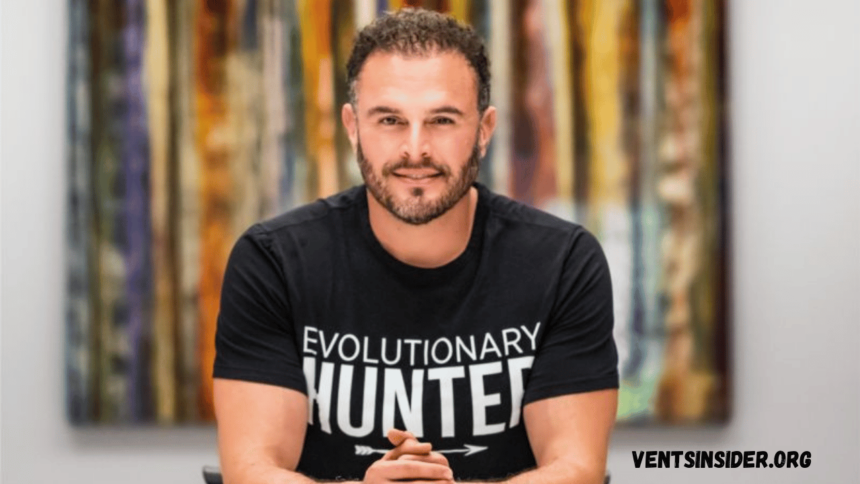In the competitive world of entrepreneurship and high-level success, the approach and mindset one adopts can significantly influence their growth trajectory. Alex Charfen, a renowned business coach and speaker, sheds light on a unique characteristic common among self-made billionaires: the tendency to compare themselves to past achievements rather than others. This introspective comparison can foster a more sustainable path to personal and professional growth, avoiding the pitfalls of external comparisons that often lead to dissatisfaction and demotivation.
The Self-Comparison Principle
Alex Charfen articulates that the most successful people, particularly billionaires, engage in self-comparison fundamentally different from the norm. Instead of measuring their success against that of their peers, they look internally—evaluating their current selves against their past performances. This principle helps them focus on continuous improvement, personal milestones, and long-term goals without getting sidetracked by the achievements of others.
Psychological and Strategic Benefits
The psychological benefits of this approach are profound. By focusing on personal growth and achievements, billionaires can maintain a clearer sense of purpose and direction. This internal benchmarking prevents the feelings of inadequacy that often accompany comparisons with others who may be at different stages in their careers or who may have had various opportunities.
Strategically, this mindset allows for a more objectively evaluating of one’s progress and challenges. Billionaires can set realistic, incremental goals tailored to their journey rather than being swayed by the market or competitors. This results in improved decision-making and resource allocation, as decisions are based on personal business metrics and historical performance data rather than external pressures.
Limiting What You Tolerate
A significant aspect of Charfen’s philosophy involves limiting what one tolerates. By reducing tolerance for inefficiency, distractions, and negativity, he suggests that billionaires can free up mental, emotional, and physical resources to invest in more productive endeavors. This principle of creating a high-tolerance threshold is not about isolation but about enhancing focus and engagement with what truly matters.
Embracing Simplicity
Charfen also highlights the power of simplicity in planning and purpose. By keeping their plans straightforward and their purposes clear, billionaires can effectively communicate their vision and expectations to their teams. This clarity leads to aligned efforts and efficient execution, as everyone involved understands the ultimate goals and the strategies to achieve them.
Reliance on People
Despite the stereotype of the solitary genius, billionaires understand the importance of collaboration. Their success is often built on the foundations of strong teams and networks. This absolute reliance on people—recognizing that no significant achievement is a solo endeavor—allows them to scale their operations and impact. By investing in relationships and empowering their teams, billionaires leverage collective expertise and drive toward common goals.
Proactive Transparency
Proactive transparency is another key element of billionaire success strategies. By being open about their plans, challenges, and feelings, billionaires foster an environment of trust and cooperation. This openness prevents misunderstandings and builds a culture where team members feel valued and understood, enhancing productivity and loyalty.
Conclusion
Alex Charfen’s insights into billionaire psychology and behavior offer valuable lessons for entrepreneurs at all levels. Comparing oneself to one’s past rather than others provides a healthier, more sustainable model for growth and success. This approach, coupled with strategic principles like limiting tolerance, embracing simplicity, relying on people, and practicing proactive transparency, can transform personal achievements and lead to significant professional success.
FAQs on Alex Charfen Billionaires Compare Themelves to Themselves
What does it mean when billionaires compare themselves to their past selves?
Comparing themselves to their past selves means that billionaires focus on their personal growth and achievements rather than measuring their success against others. This approach allows them to concentrate on continuous Improve and create realistic objectives based on their previous accomplishments.
Why do billionaires prefer to compare themselves to their past selves?
Billionaires prefer this method because it helps maintain a clear focus on personal development without the distractions of external competition. It encourages a mindset of self-improvement, which is crucial for long-term success. It avoids the negative psychological effects of comparing oneself to others who may be at different stages of their journey.
How does comparing themselves to their past selves benefit billionaires?
This method of self-comparison helps billionaires stay motivated and grounded. It allows them to see tangible progress and adjust their strategies based on what has been effective in the past. Additionally, it helps prevent complacency and ensures they always strive to surpass their previous limits.
Can non-billionaires apply the practice of comparing themselves to past achievements?
Absolutely. This technique may help anybody, regardless of their financial status or career stage. Focusing on personal growth and setting individual benchmarks can foster a healthier, more productive mindset emphasizing personal progress and satisfaction over external validation.
What are some strategies billionaires use to track their progress against past achievements?
Billionaires often keep detailed records of their goals, accomplishments, and reflections. They may use journals, digital tracking tools, or regular consultations with mentors and advisors to assess their progress. Setting clear, measurable objectives and regularly reviewing past performance is crucial.






